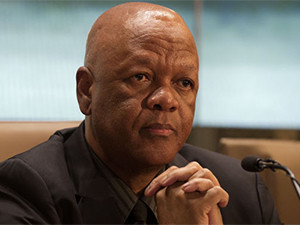
Government is open to engage with the coal industry following industrial action by contracted coal transporters who disrupted traffic towards the Pretoria CBD last week.
This was revealed last week by Jeff Radebe, minister in the presidency responsible for planning, monitoring and evaluation.
The protest action was against the recent commitment by the country's authorities to procure billions of rand in renewable energy, a decision that the Coal Transportation Forum (CTF) believes will bring crippling job losses in many sectors.
The industry wants government to slow down the independent power producer programme (IPP) with the renewable energy sector, fearing massive job losses.
While IPPs have accused power utility Eskom of dragging its feet on signing outstanding power purchase agreements, president Jacob Zuma recently said the power utility will sign the contracts with the renewable energy industry. He made the remarks last month during his State of the Nation Address.
Last week, energy minister Tina Joemat-Pettersson also reiterated Eskom will sign the outstanding PPAs soon.
"Government notes the concerns of contracted coal transporters regarding the impact that renewable energy projects may have on the supply of coal to Eskom, which may affect jobs in their industry," said Radebe.
"Government is open to constructive engagement with the legitimate leaders of the coal trucking industry to address issues."
Radebe said government must act responsibly in its energy planning to ensure sustainable and affordable energy supply.
"The system relies on a combination of base load (coal and nuclear) and intermittent supply of electricity (renewables and gas). It is clear from the draft 2016 Integrated Resource Plan that South Africa will continue to deploy coal electricity in the energy mix," Radebe said.
A recent study by the CSIR revealed renewable energy sources are much cheaper than fossil fuels like coal and nuclear. Although still heavily dependent on fossil fuels, SA has been championing the use of renewable energy sources.
However, CTF says government's move towards renewable energy happens at a time when the electricity consumption is showing a decline of 1% for 2016/2017, and Eskom has announced a surplus of 5 600MW, including operating reserve of 2 000MW.
The organisation believes the unintended consequences of the IPP programme are Eskom will be forced to shut down at least Komati, Hendrina, Arnot, Camden and Grootvlei power stations; up to 30 000 permanent jobs will be lost by Eskom and its associated suppliers; coal mines will close and EMalahleni will be reduced to a ghost town; coal transporters and suppliers will be forced to retrench workers; and many towns in Limpopo and Mpumalanga that are reliant on coal mining as the pillar of their economies will become ghost towns.
Share